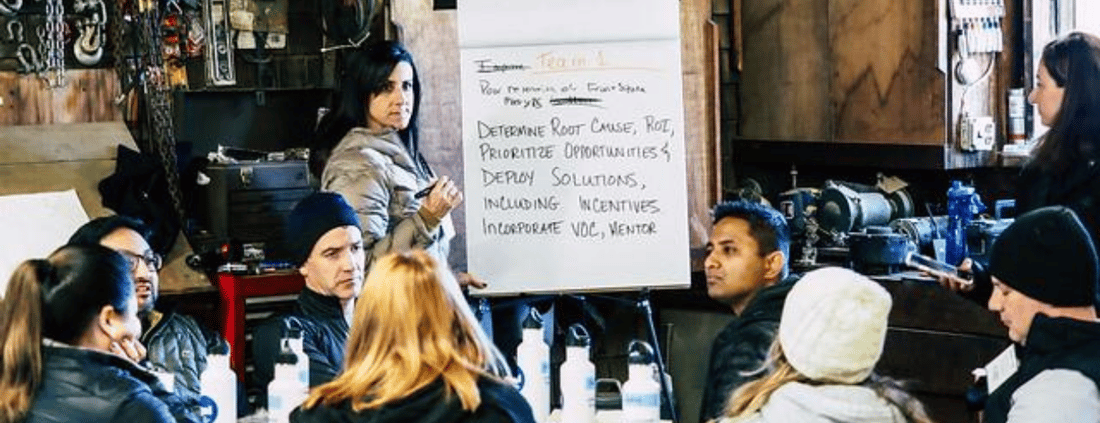GEL programs can take a number of different forms — sailing an America’s Cup yacht, simulating a military special operations mission, or participating in a visioning workshop at the top of a mountain, to name a few. But no matter the program, the ultimate goals of our experiences never change.
GEL is Committed to Developing and Supporting High-performing Teams and Effective Leaders
To do this, we focus on three key goals that guide the planning process, experiential program, and facilitated debrief.
- Support participants on the journey to reach their full potential as leaders and teams.
- Help participants deepen relationships and enhance business results.
- Create memorable shared experiences that serve as touch-points and motivation for continued growth.
1. Support participants on the journey to reach their full potential as leaders and teams
For individuals to truly reach their full potential, they must create a mindset of life-long learning, focusing on developing skills and habits that support changes in behavior.
Learning almost anything new involves four distinct phases of skill acquisition.
- Unconscious incompetence: Before the learning process begins, you’re unaware that you do not possess a certain skill.
- Conscious incompetence: Once learning starts, you understand the competencies required to master a skill, but have not yet built your knowledge and expertise.
- Conscious competence: As the learning process continues, you are gradually able to complete the skill with practice, focus, and concentration.
- Unconscious competence: Lastly, by continuing to develop competencies, “muscle memory” becomes engrained, allowing you to perform the skill without conscious thought.
When mastering certain skills, you can enjoy multiple “aha moments” as the phases repeat and you add more skills to your repertoire. It becomes a confidence-building and highly enjoyable cycle.
To help participants reach their full potential as leaders and team members, GEL strives to inspire this skill acquisition mindset and approach to developing strong leadership and communication skills.
Our programs take people out of their comfort zones, often starting at phase one where confidence is low and exposing them to leadership and collaboration concepts in new and exciting ways. Experiential programs provide focused practice, real-time feedback, and facilitated reflection that sets participants on a course for mastery.
2. Help participants deepen relationships and enhance business results
Trust is the foundation upon which all performance rests. Sharing in a high-impact experience builds trust and supports a culture of authenticity and accountability.
GEL programs emphasize teamwork, leadership, and communication, creating experiences that mirror office dynamics. Teams are encouraged to discuss how people showed up for themselves and each other during the program and the impact of those insights on business and working relationships. These conversations lead to a level of connection beyond what is typically generated during a marketing, operations, or finance work session in the office.
The benefits of this work go beyond the immediate impact — strengthening relationships helps teams achieve desired business outcomes. Teams with a high level of trust and accountability consistently deliver better results.
3. Create memorable shared experiences that serve as touch-points and motivation for continued growth
The third goal relates directly back to the importance of mindset. Everyone is busy. With many competing priorities and rarely enough time, it’s easy to mechanically move between to do lists and meetings, focusing on completion as the only goal.
GEL programs rely on a group’s shared experience as a way to change mindsets. By emphasizing accountability and setting new leadership and team building goals, we use the power of team to encourage continued growth. Participants learn to work together, creating motivations to continue practice and skill development throughout their careers.
Taking the time to understand clients’ business objectives before planning an offsite allows GEL to customize the program to address specific needs and emphasize known growth opportunities. That way, colleagues and teams are continually working together long after the program ends, encouraging each other to strive for personal and professional milestones most important to their work and objectives.
By focusing on these three goals as our guideposts when developing and facilitating experiential off-site programs, GEL is able to support a variety of different teams as they chart a path to sustained success.


